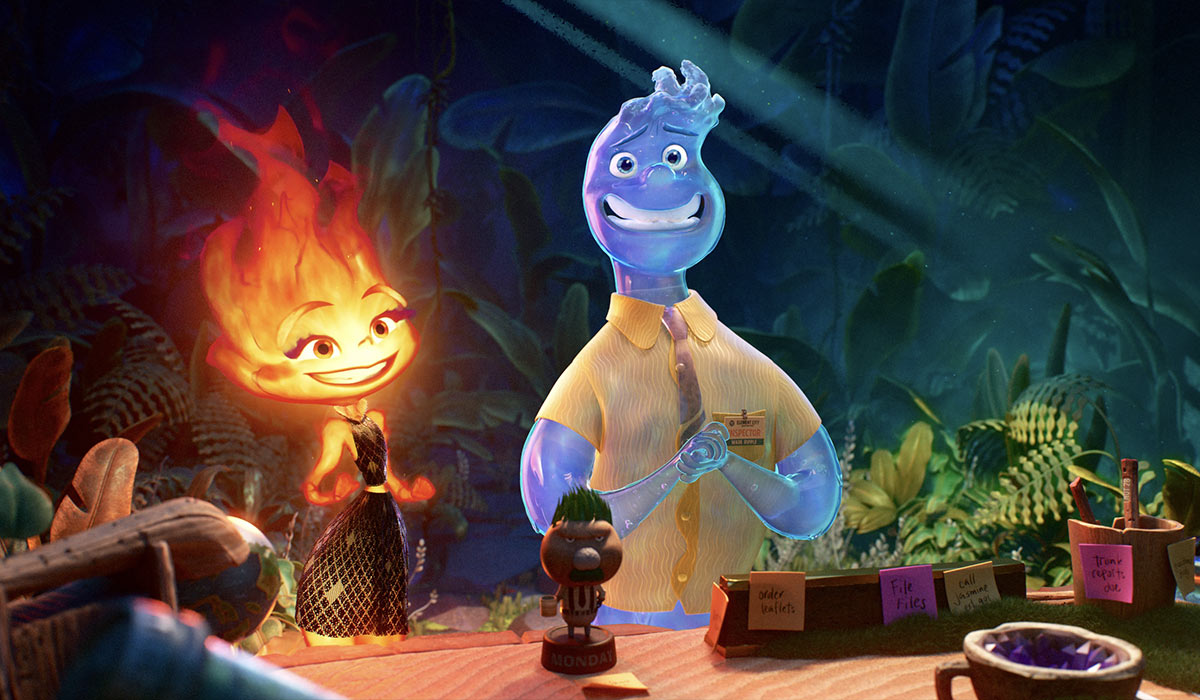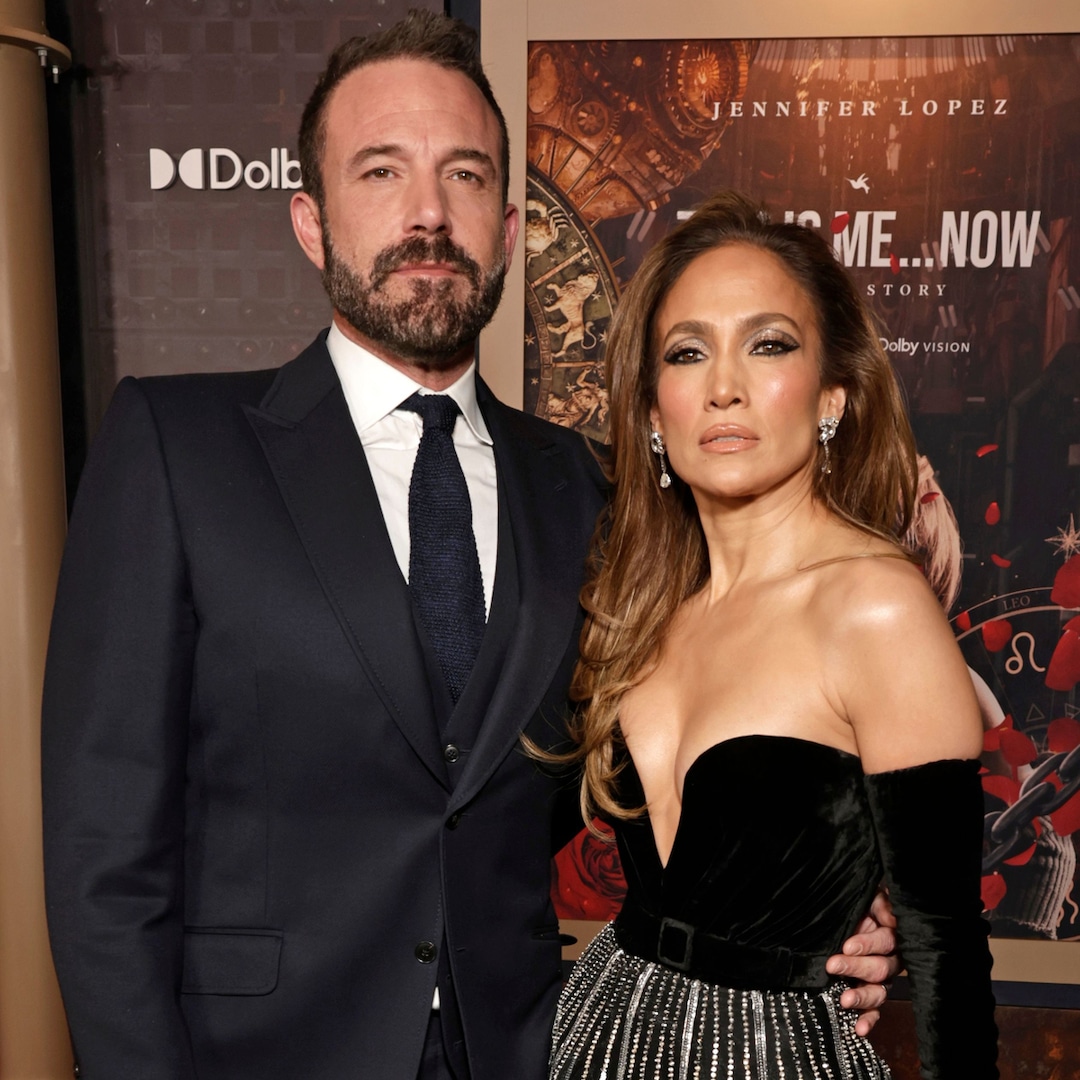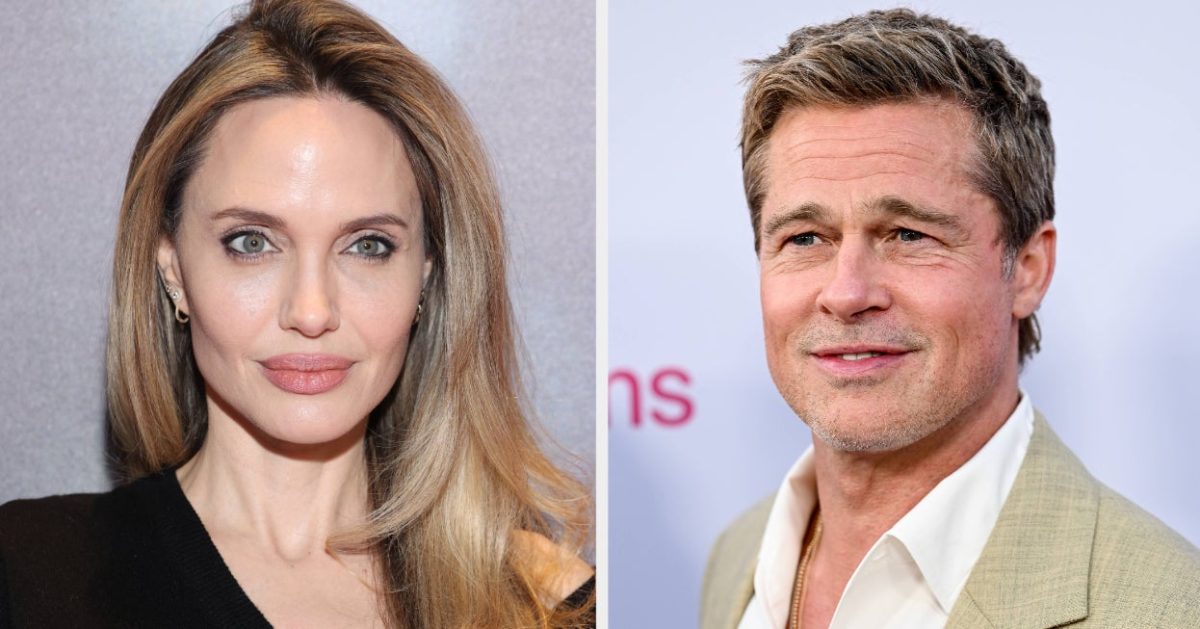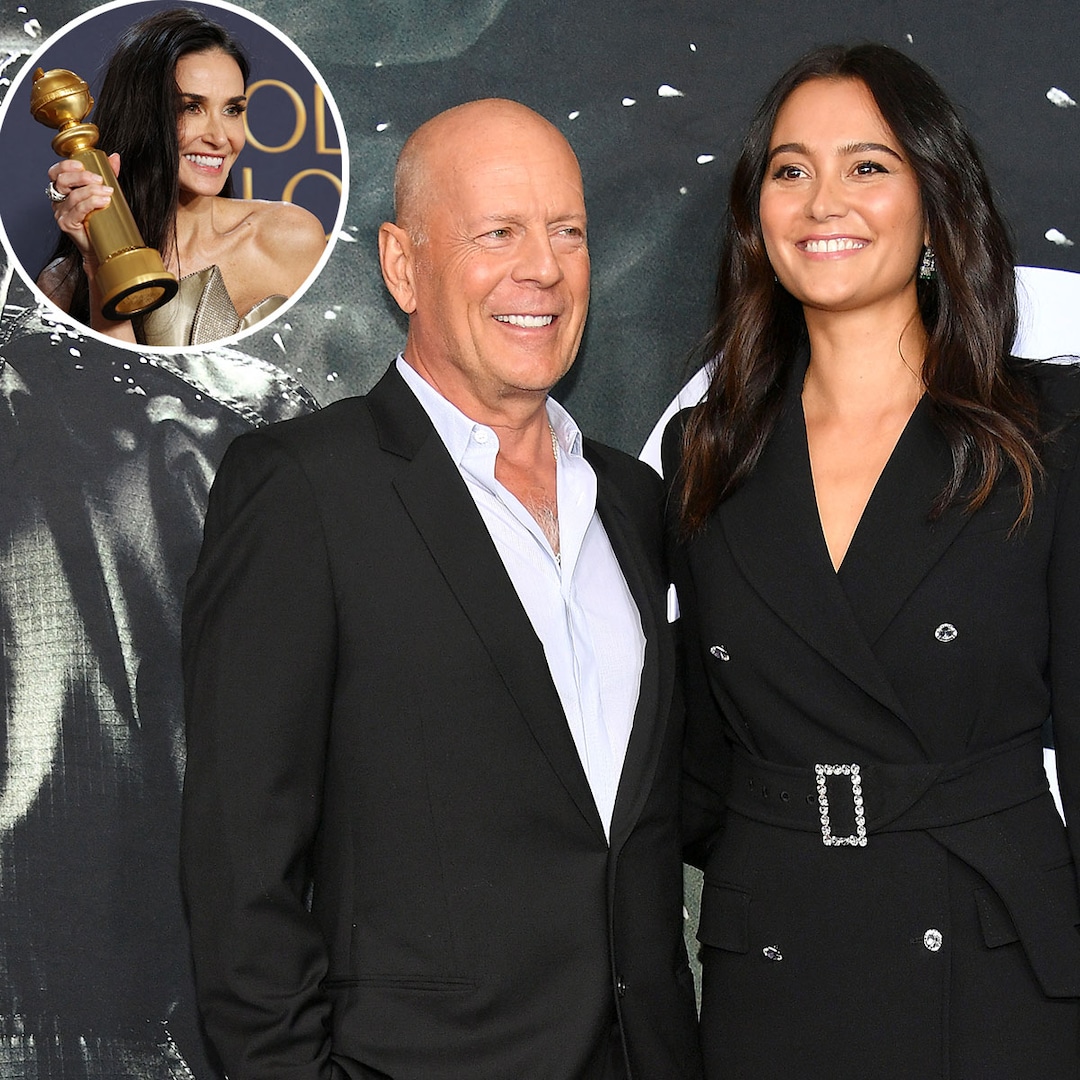
Peter Sohn Revisits The Emotional Box Office Comeback Of ‘Elemental’ [Interview]
Nov 24, 2023
If you had listened to the media industry pundits on Sunday, June 18th, Disney and Pixar had another disappointment on their hands. Peter Sohn’s “Elemental,” just the second Pixar film to open directly in theaters since the end of the pandemic, earned just $29 million in the U.S. over its opening weekend. It was the lowest debut for a Pixar movie since the original “Toy Story” hit theaters in 1995. And then something unexpected occurred. The movie found its audience.
READ MORE: “Elemental” Review: Pixar’s fire and water metaphor for tolerance and differences
Despite the eventual onslaught of “Barbie” and “Oppenheimer,” Disney managed to hold onto screens worldwide, and the film slowly but surely held on. By the time it left theaters over three months later, “Elemental” had earned $154 million in the U.S. and an impressive $495 million worldwide. The movie Wall Street and media pundits were quick to judge a flop became a profitable hit. And that doesn’t even reflect how popular it’s been on Disney+ where the streamer revealed 26.4 million views over its first five days.
Earlier this month we spoke with director Sohn, who, as the son of Korean immigrants, had an especially emotional connection to the film. As the film looks to solidify its place as yet another Pixar Oscar-nominated Animated Feature, he reflects on the roller coaster ride of critical, box office, and audience acceptance; the difficulty in crafting the CG animation for both the fire and water characters such as Ember and Wade; how the film tackles the never-ending scourge of xenophobia; and much, much more.
_____
The Playlist: In terms of contemporary box office, you had an unusual sort of run. The movie was initially framed as disappointing and then it became the word-of-mouth family hit of the summer. Do you remember when you started to think this might be a hit?
Peter Sohn: Well, yes. In the beginning, I was just worried about, “Oh, the film’s not connecting.” Some people hadn’t even seen the movie and they were already writing it off. And so, there was this heartbreak from just like, “Oh, we worked so hard to just get audiences to connect to it.” And there was some social media stuff that I was following before the film even came out, that was so dark, just on images of, “What are Pixar…what are they doing? What is this fire character?” And I just like, “O.K., I’m going to just stop looking at social media.” So, I just stopped and I just did the work of the press that just kept trying to sell the movie as best as I could. And yeah, after its opening weekend and how it underperformed and all of that, was really challenging. But to your question, what was it? It was maybe two weeks later, someone told me to, “Did you check Twitter? And” I was like, “No, I haven’t been.” And they said, “Please check this one … ” there was some chain of something that I got forwarded and I opened that up. And then there were just people that had seen the movie that were talking about Wade and that he’s the perfect boyfriend. And then it just went into this list of people connecting to some of the first gen, second generation issues. And as I was reading through it, I was just like, “Oh my gosh, some people are connecting to it.” And I would get more from friends around me talking about people that were now going to the theaters from word of mouth. Someone telling me, “I just heard this movie was really good.” And then it started growing. And in my mind, even then, I don’t think I was all like, “Yes, this is amazing.” I was really thinking about the crew. This whole team had put so much in there and I did too, but I just didn’t want the crew to be disappointed and I just wanted them to be proud of the work they had done. And so, I was trying to find a way to share this news, but the crew was sharing this news with me, where they were just finding more.
As the weeks went by, I got an email from my boss about, “Look, there’s something going on in South Korea.” And because my parents were from Korea, there was this whole sort of a new emotional aspect to it because someone had written, “Your parents are looking down on you right now. They’re helping in some way.” And I got very emotional over it all. But I think in the middle of the South Korea experience, as there were a lot of other countries that were lifting up and holding strong in the theaters, the movie wasn’t being taken out of theaters and people kept going and going and going. And it was around there that I was going, “Oh my goodness, this is …” Something is going on that I couldn’t explain. But I would get a lot of messages of people connecting to the movie in various ways, emotional messages in my DMs saying, “Oh my God, I’ve had love like this and I lost this person.” Or, “I’m so grateful for my parents every day.” And it became that word-of-mouth thing, became a lifting thing. It was such a weird thing of, yes, word of mouth is someone liked the movie and recommending it to someone, but more than that, it became sort of this rocket fuel of emotions that it was just like, “Wow, it’s lifting up.” I’ve never experienced anything like that before, Greg. It was incredible.
And not only that, you made it through and survived the Barbenheimer life onslaught. Everyone was like, “Oh, they’re having a really great run.” But then, no, it just kept going. Been also a relief and sort of like, wow.
Yeah, yeah, it was all of that and more. And then on Disney+, people are still finding the movie there, and it’s still growing in a way that has been really unexpected. And I’m super lucky, Greg. I just feel super lucky that it’s connecting.
Obviously, this was a very personal story for you, and you spent seven years making it, and already in the context of the interview, you’ve mentioned a number of times that the public reacting to it was important to you. Has that always been for you, more important than critical or industry reactions?
No, the audience is the audience, meaning both critical and everyone just [watching it]. I just grew up loving those types of movies, really universal movies that could cross cultures and things like that. And yeah, I’d love anyone to watch the film and get something out of it, for sure. And some of the critical reviews were off in a way that was disconnected and I was trying to process that. But then more came in with people connecting [to it], and I guess that’s all I can ever ask for.
What was the toughest nut to crack? Was it the stories? Was it the characters? Was it the design?
I think easily the making of these characters. The story was just as difficult as it always is. But Pixar, we’ve never done characters that were all made out of effects. And that means every shot of the film is an effect, which in the movie movie-making business is very expensive and very tough to do. And we were trying to find a way to create a character that didn’t have a skeletal structure, that felt gaseous and flowy and was constantly moving. For a romance, we need to be sitting on these faces and falling in love with the landscape of a person’s face. Some of our early tests are so busy that trying to control simulations becomes the primary challenge. It’s also what made the film take a little longer than other films, was trying to create a new pipeline. Most of Pixar’s [animation] pipeline has been built so that we make toys [or] we make metal cars that the light bounces off of all of that. But once you do water, getting all the layers of refractions in there and droplets, and the caustic lighting, that we had never done. And so, building those characters from the ground up took several years and a lot of experiments.
When you guys do something groundbreaking in a way like that, does it make it easier the next time? Or is it always just so hard because of what it entails, creating an effect for a character?
I would say it should make it easier the next time, but I think the appetite of Pixar artists is to … because of Moore’s law, the technology just gets faster that they keep pushing that. Fire was very difficult to control, but Water was the monster. Wade’s character, the way he was reflecting everything in dark light or in the bright light was just so tough. I think he won’t be easy again. You just have to light him. Ember, there are no shadows on Ember. You can’t shadow a character that’s made a light. So, she’s much easier to do. I can see that she would be optimized so much, that she’ll be easier to bring back.
Was there one moment in the film that meant more to you than any others?
There are two moments, really. There’s the bow at the end of the movie, but there’s this moment where Ember goes down into this underground, flooded underground station, where Wade gets a friend to make this air bubble and brings her down there. And it’s a romance movie, obviously, but this gesture that Wade does in terms of trying to understand what Ember had gone through in terms of the xenophobia that she had as a kid, and that was a very personal thing for me because I had experienced that as a kid with my father, where I was ashamed of my dad for yelling at someone that hurled an epitaph at us. And I don’t know why I did that and I was too young. But there’s a moment like that in the film, where Ember was denied going to see a flower because the fire was too dangerous, and it connected to something that was this emotional moment, where Wade brings her through this miracle of fake science, of bringing air down there for her to breathe and see the wisteria flower for the first time. And there are some looks there that the animators did that I’m very proud of. And I always look at that moment going, “Wow, I can feel the performers’ love for each other here.” It’s pretty silent. Thomas Newman’s score lifts the movie up there, the effects that people did to create that bubble, and all those effects, it just represents a lot of these fulcrum moments of technology meeting art there for me.
What I found really interesting about the film is it tackles xenophobia. And while you were making this seven years ago, you must have thought, “Oh, we were going through this COVID, Black Lives Matter moment. People are becoming more open and understanding or look at the people in the streets, and now it is three years later and what’s going on today with, because of what’s going on in the Middle East, clearly that’s all just inflamed again. How do you feel about having gone through that journey while making the film and where we are today with it?
It’s a very interesting question, Greg. There are two pieces of it for me. The first piece is that something amazing happens when you’re making art, whether you’re conscious of it or not, your life will just get into the work. That’s one aspect that I remember feeling. The second thing is that in the beginning of production, my father died, and this whole film was about thanking our parents, and that event was a surprise for my family. My mom would die a couple of years later, and a lot of these issues boiled up in me. And of course, the world was affecting me in that way, but I think it got magnified with my trying to understand my grief for my father. But he came to New York in the late ’60s, where he faced much more hardship with xenophobia and that type of prejudice than I ever did, and he was formed by it. It was a part of his identity as a father. And when making this movie, where there were characters like this that were dealing with that, it was echoed louder in the film. There was a version of this film that was much darker. [And] I can only assume my grief was magnifying somehow, I don’t know, and the world around me. And so, part of the journey was trying to not lose objectivity of what this film was originally about. It was about this love story and understanding our parents as people and being grateful for the sacrifices that they’ve made, and I lost that. It became this very angry movie in its early inception that, because of the death of my parents, that affected me, and then trying to find my way back to that original heartbeat became the journey. Versus, “Oh, this is all the stuff that’s going on in the world and let’s make this film about that.” There was, and I was thinking about it, but the personal life of my parents totally overwhelmed me in a way that I wasn’t expecting in making the film.
In this new world for Disney and Pixar and concerns about the box office for animated films, is there still room for Pixar to make movies like “Elemental,” “Soul,” and “Luca”?
Yes, absolutely. The heart of a lot of those films, or all of those films, is that ingredient of trying to make something universal for everybody and trying to dig into our human lives and trying to find truths but presented in an entertaining way or something thoughtful and ultimately cathartic and emotional. None of that is changing. It’s really about understanding what parts of the movies may not connect. It’s not about changing it, it’s just understanding it and as a tool for a choice when making a decision on a movie, but even on Disney+ right now [it’s doing very well]. Yeah, people still love Pixar movies. People still love the hearts of these things, but even before this, you’re always trying to push and question what’s there. You don’t want to just follow the same sort of formulas over and over again. And so, there’s always a force that’s trying to push and make sure that the studio is doing the best that it can. I don’t know if I would attribute that to where we are with “Elemental,” but maybe. I’m always a sincere person in this regard and would continue to try to push for those truths that we feel, and that can connect all of us, but trying to push for more fun and more entertainment in the same place, you know?
I totally get it. I guess my last question for you is, and I don’t even know if you can say, you might not be able to say what the project is, but do you know what you’re doing next?
I’m beginning to go into development again. I’ve been helping some other shows out, but yeah, I feel like I’ve had an idea for something for a while and I’ve gotten conversations about other things, and so yeah, going back into development, but it’s all so nascent right now, and so nothing’s real yet, but it’s been exciting to just talk.
“Elemental” is now available on digital download services and Disney+
Publisher: Source link
Celebrities With Their Own Companies
Celebrities With Their Own Companies Whether you aspire to be an actor or musician, getting the shot at a big break is hard enough. But managing to make a career outside of what you were already famous for? Now that's…
Jan 7, 2025
Jennifer Lopez Reunites With Ex Ben Affleck at His Home
Jennifer Lopez & Ben Affleck Reunite at His L.A. Home Amid EstrangementThis is a pair of friendly exes...now. Less than five months after filing for divorce from estranged husband Ben Affleck, Jennifer Lopez reunited with the two-time Oscar winner at…
Jan 7, 2025
Why Angelina Jolie Won’t Talk About Brad Pitt Divorce
Why Angelina Jolie Won't Talk About Brad Pitt Divorce For a quick reminder, Brad and Angelina started dating back in 2005 after meeting on the set of their movie Mr. & Mrs. Smith. They didn’t get married until August 2014,…
Jan 6, 2025
Bruce Willis’ Wife Emma Reacts to Demi Moore’s 2025 Golden Globes Win
Demi—who wore custom Armani Privé to the event—beat out fellow nominees Amy Adams, Cynthia Erivo, Karla Sofía Gascón, Mikey Madison and Zendaya in her category. And when accepting her award, the 62-year-old shared a powerful message on overcoming a "low point"…
Jan 6, 2025











